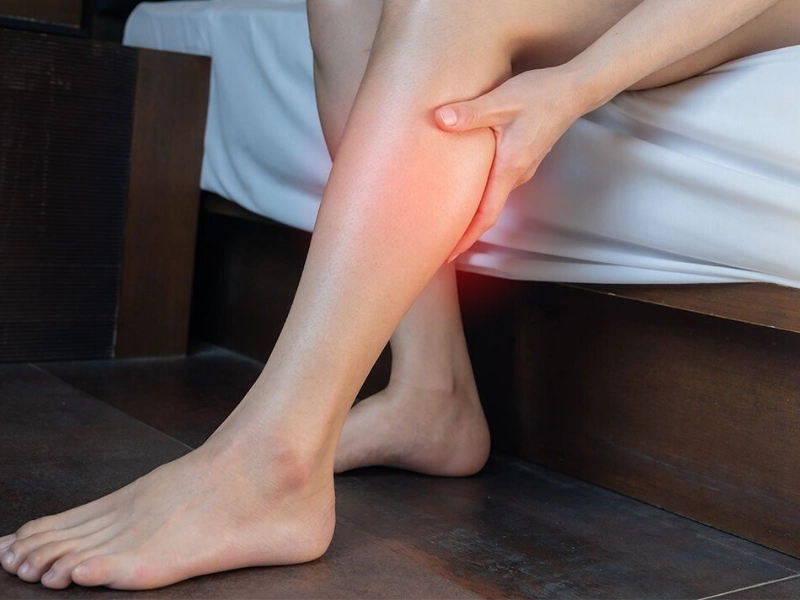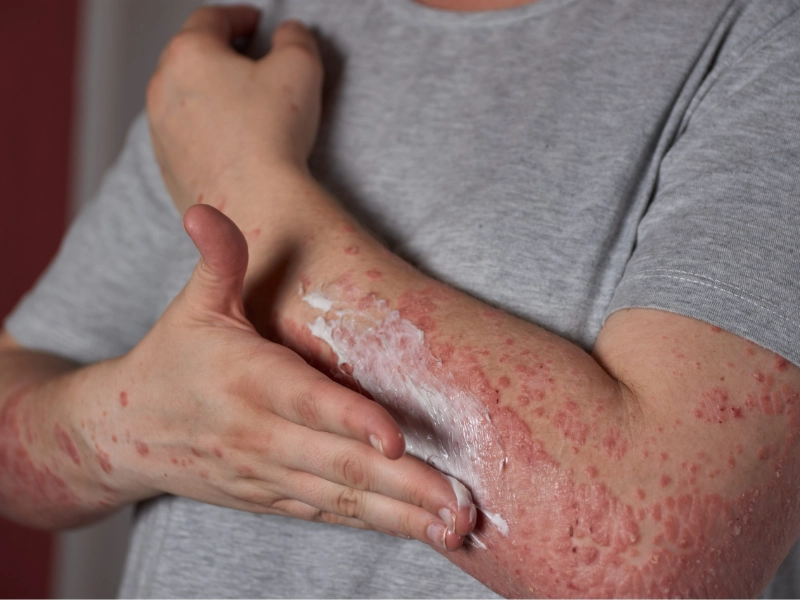Although vitamin D is well-known for its importance in bone health, by conversion to calcitriol it also has strong immunomodulating action. This active form of vitamin D downregulates proinflammatory Th 1 and Th 17 T cell phenotypes by means of modulation of antigen-presenting cells, hence fostering tolerogenic regulatory T cells. People consuming omega 3 fatty acids and vitamin D showed 22% fewer autoimmune illness than those on a placebo, according to a recent experiment. Should we all then begin swallowing vitamin D pills?

Apart from its well-known contribution to bone health, active 1,25(OH)2D3 controls fundamental elements of innate and adaptive immunity. Its nuclear receptor reduces the action of cytochrome P450 (CYP24A1), which typically deactivates vitamin D. It is found in monocytes/macrophages and dendritic cells among other immune cells. Low serum 25(OH)D levels have been linked, according cross-sectional studies, to autoimmune disorders. In rheumatoid arthritis, for example, a low level of 25(OH)D is linked with an increased risk for disease flare and with worse global health visual analogue scale scores as well as with more severe joint destruction. Cholecalciferol supplements have been demonstrated to help to lower RA flare frequency and duration. Furthermore, a recent RCT revealed that in RA patients with moderate to severe illness a high-dose cholecalciferol regimen enhanced physical performance and lessened symptom severity. Still, further study is required to identify the exact processes by which vitamin D protects against autoimmunity.
 From diet, vitamin D enables the body to absorb calcium and phosphorus, therefore strengthening bones. The bones could weaken and acquire a malformation without enough vitamin D. Rickets most usually affects young children and newborns. If the youngster does not eat enough foods high in calcium and phosphorous (like milk, fish and fatty fish) or does not get enough sun exposure (since sunshine helps the skin produce vitamin D), it is most likely. It can also arise in those with some genetic disorders influencing the synthesis or usage of vitamin D.
Low vitamin D in rickets softens and breaks down the bone. Side affects including bowed knees, a hunched back (kyphosis), an outward protruding breastbone known as pigeon chest, and an odd head shape are sometimes accompanying this. Babies born prematurely and those fed just breast-fed are more likely to have it since their mother's milk may not be providing enough vitamin D.
From diet, vitamin D enables the body to absorb calcium and phosphorus, therefore strengthening bones. The bones could weaken and acquire a malformation without enough vitamin D. Rickets most usually affects young children and newborns. If the youngster does not eat enough foods high in calcium and phosphorous (like milk, fish and fatty fish) or does not get enough sun exposure (since sunshine helps the skin produce vitamin D), it is most likely. It can also arise in those with some genetic disorders influencing the synthesis or usage of vitamin D.
Low vitamin D in rickets softens and breaks down the bone. Side affects including bowed knees, a hunched back (kyphosis), an outward protruding breastbone known as pigeon chest, and an odd head shape are sometimes accompanying this. Babies born prematurely and those fed just breast-fed are more likely to have it since their mother's milk may not be providing enough vitamin D.

Both osteomalacia and osteoporosis are bone diseases involving soft bones that could cause fractures. Their reasons varied, nevertheless, as does their symptoms. Vitamin D is generally obtained by sunshine exposure and to a lesser degree from the diet; so, a lack of vitamin D causes osteomalacia. The disorder results from inadequate mineralisation of mature bone matrix, or osteoid. Poor nutritional intake, insufficient sun exposure, calcium availability problems including malabsorption, renal or hepatic disease, or very rare inherited genetic abnormalities such X-linked hypophosphatemic rickets can all contribute to this. Usually taken long-term, treatment calls for prescription-strength vitamin D pills. Studies have indicated that vitamin D helps to produce and preserve healthy bones and slows down the breakdown of bone tissue, therefore preventing osteoporosis and improving skeletal strength. It also serves to control body calcium levels. Studies have also shown that it stimulates Treg cell growth and reduces inflammatory cytokine output in the immune system.
 A class of fat-soluble secosteroids, vitamin D raises calcium and magnesium intestinal absorption. It exhibits numerous other biological effects as well. As a nutritional supplement and in a few foods is vitamin D available. The main natural source of vitamin D for humans is sunshine.
From too high use of vitamin D, vitamin toxicity is rather rare. Vitamin D status is ascertained from serum 25(OH)D levels. For most individuals, the Food and Nutrition Board (FNB) advises a sufficient daily intake of 800 IU (20 mcg).
Deficiency of vitamin D is linked to cardiovascular disease (CVD). It might compromise the inflammatory and fibrotic pathways as well as normal renin-angiotensin-aldosterone system functioning. It could also raise one's chance of hyperlipidaemia development. Furthermore affecting vitamin D function are autoimmune disorders. Low serum 25(OH)D levels have been linked, according several big observational studies, to a higher risk of cancer. More study is required, though, to determine whether extra vitamin D would lower rates of cancer-related death.
A class of fat-soluble secosteroids, vitamin D raises calcium and magnesium intestinal absorption. It exhibits numerous other biological effects as well. As a nutritional supplement and in a few foods is vitamin D available. The main natural source of vitamin D for humans is sunshine.
From too high use of vitamin D, vitamin toxicity is rather rare. Vitamin D status is ascertained from serum 25(OH)D levels. For most individuals, the Food and Nutrition Board (FNB) advises a sufficient daily intake of 800 IU (20 mcg).
Deficiency of vitamin D is linked to cardiovascular disease (CVD). It might compromise the inflammatory and fibrotic pathways as well as normal renin-angiotensin-aldosterone system functioning. It could also raise one's chance of hyperlipidaemia development. Furthermore affecting vitamin D function are autoimmune disorders. Low serum 25(OH)D levels have been linked, according several big observational studies, to a higher risk of cancer. More study is required, though, to determine whether extra vitamin D would lower rates of cancer-related death.